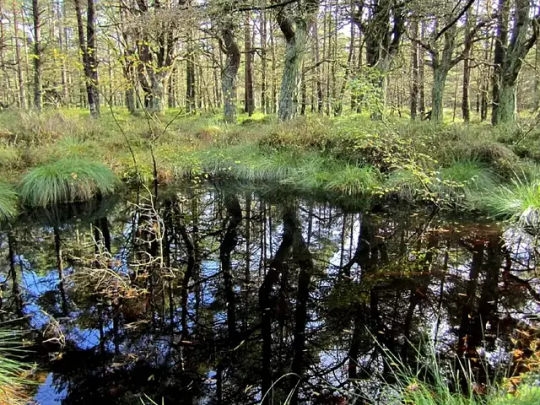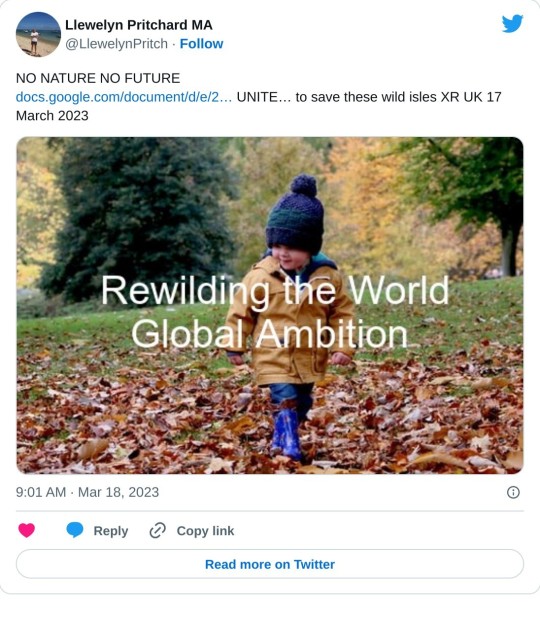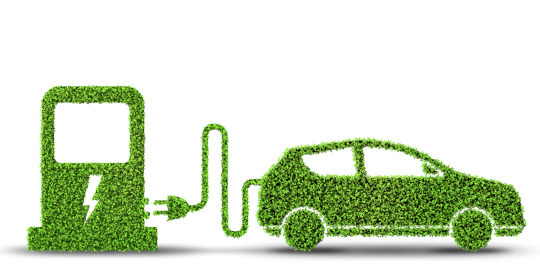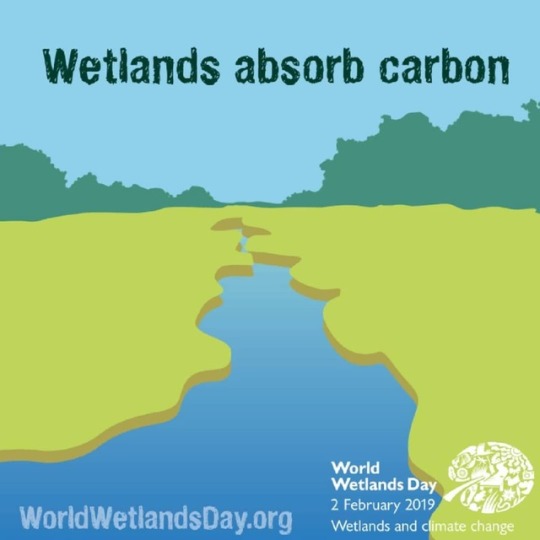#carbonstorage
Text
"
Banks and other big businesses will be forced to come clean with the public about what they are doing to cut emissions under plans put forward by the Albanese government.
The government is also looking for ways to crack down on “greenwashing” – or when businesses try to win over consumers by overhyping their environmental practices.
"The treasurer, Jim Chalmers, will say in a speech in Sydney on Monday that Australian firms “need to make credible disclosures to remain competitive in global capital markets”.
#jail climate criminals#climate criminals#climate crisis#climate change#greenwashing#fossil fuel industry#australia#anthony albanese#industry data#changement climatique#we want climate action now#carbon emissions#greenhouse gas emissions#greenhouse gases#carbonstorage#carbon storage#qihou bianhua#klimawandel#klimakatastrophe#cambio climático
17 notes
·
View notes
Text
New Government Actions to Reduce Peat Carbon Emissions and Support Farmers

In a bid to combat climate change and support sustainable farming practices, the government has unveiled new measures aimed at improving lowland peat and reducing carbon emissions.
These actions come following recommendations from Robert Caudwell, the independent Chair of the Lowland Agricultural Peat Task Force, whose report was published today.
Preserving Peat Soils for a Sustainable Future
Peat soils are crucial in the fight against climate change as they store over half of the country's terrestrial carbon. However, centuries of drainage for agriculture have led to the drying out of peat soils, causing the release of carbon into the atmosphere. Currently, only 1% of England's lowland peatlands remain in a near-natural state.
By rewetting lowland peat soils, multiple benefits can be achieved, including reduced carbon emissions, improved food security, enhanced wetland biodiversity, and better protection against flooding.
Government Announces Comprehensive Action
To support the preservation and sustainable management of lowland peatlands, the government has committed to implementing all of Robert Caudwell's recommendations.
Trudy Harrison, the Environment Minister, emphasized the significance of peatlands in the battle against climate change, stating that they house over half of the country's terrestrial carbon stores and provide resilience for future farming.
The government's new measures include providing funding for innovative water management schemes. Over £7.5 million will be allocated to drive advancements in understanding the water challenges associated with lowland peat, transforming the way water is utilized in these regions.
The funding will also support the installation of infrastructure and monitoring technology, enabling better control of water levels.
These initiatives aim to improve resilience to drought and safeguard farming on valuable agricultural land. By adopting sustainable peatland management practices, the government aims to support the rural economy and the livelihoods of those dependent on the land.
Recommendations for Sustainable Peatland Management
The Lowland Agricultural Peat Task Force, established in 2020, explored ways to improve the condition of England's lowland farmed peat while ensuring the continuation of productive agriculture.
The Chair of the task force, Robert Caudwell, presented fourteen recommendations to the government and the wider sector for more sustainable peatland management.
Some of the key recommendations include:
- Investing in water storage, management, and control
- Allocating public funds for wetter farming practices on peat soils
- Providing technical advice on maintaining wetter peat soils
- Creating viable opportunities in private finance
- Raising awareness of lowland agricultural peat soils
- Implementing the task force's roadmap for commercially viable paludiculture (farming on rewetted peat)
Robert Caudwell expressed gratitude to the task force members for their dedication to finding sustainable ways to manage lowland agricultural peat. He emphasized the importance of reducing carbon emissions from lowland peat in the government's climate change plan.
Funding Allocations
The new funding will be distributed across two pilots. The Lowland Agricultural Peat Small Infrastructure Pilot, receiving £5.45 million, will facilitate the installation of infrastructure and monitoring technology for better control of water levels in lowland peat areas. The project is being supported by the Association of Drainage Authorities.
The Lowland Agricultural Peat Water Discovery Pilot, funded with £2.2 million, will be delivered by the Environment Agency. This initiative aims to enable local and water peatland partnerships to develop costed water level management plans for lowland peat areas in England.
Alan Lovell, Chair of the Environment Agency, welcomedthe publication of the Caudwell report and acknowledged the crucial role of sustainable water management in protecting the carbon stored in peat soils.
The report's findings, combined with further research and development, will provide support and incentives for farmers transitioning to more climate-friendly peat soil farming practices.
Supporting Paludiculture and Overcoming Barriers
In addition to the funding for water management projects, the government has announced the winners of the £5 million Paludiculture Exploration Fund grant scheme.
This scheme, administered by Natural England, aims to address barriers to developing paludiculture as a commercially viable farming practice on lowland peat soils.
Twelve projects across England will receive support, focusing on understanding and overcoming obstacles to farming on wet peat soils.
Tony Juniper, Chair of Natural England, highlighted the importance of finding ways to support livelihoods and meet societal needs while halting peat soil degradation. The Paludiculture Exploration Fund will contribute to revitalizing peatlands and promoting profitable and sustainable rural businesses through wetland agriculture.
Government Commitment to Climate Change and Nature-Based Solutions
Today's announcements align with the government's commitment to driving international ambition in climate change action and pursuing nature-based solutions.
The projects and initiatives demonstrate the government's determination to achieve its net zero pathway and deliver on its lowland peat commitments within various plans, including the England Peat Action Plan, Net Zero Strategy, Environmental Improvement Plan, and Plan for Water.
The evidence generated by these projects will inform Defra's efforts in lowland peat management and contribute to the development of the new England Peat Map, to be published next year.
Furthermore, Defra has already funded the update of the Peatland Code, launched a £6.6 million peatland research and development program, and is working on new farming schemes to support rewetting, restoration, and innovative farming methods in lowland regions.
Collaboration for Sustainable Peatland Management
Recognizing the environmental benefits and the crucial role of lowland peat soils in food production, the government will continue to collaborate with Robert Caudwell, farmers, landowners, and the wider industry to implement the recommendations for sustainable peatland management.
Key facts:
The Lowland Agricultural Peat Task Force, chaired by Robert Caudwell, was formed to improve the condition of England's farmed lowland peat.
The task force comprised national and regional sub-groups, bringing together experts and stakeholders in the field.
The projects mentioned in the press release include the Lowland Agricultural Peat Water Discovery Pilot and the Lowland Agricultural Peat Small Infrastructure Pilot, which will receive funding to facilitate water management and infrastructure installation.
Defra and the Environment Agency are also planning to support a research and development program focusing on rewetting peat and investigating aspects such as water demand, supply, storage, flood risk management, water quality, biodiversity, and regulation.
About Robert Caudwell
Robert Caudwell chaired the Lowland Agricultural Peat Task Force, which operated from 2021 to 2022. The task force included representatives from various organizations and experts in paludiculture.
Sources: THX News, Department for Environment - Food and Rural Affairs, Environment Agency, Natural England, & Trudy Harrison MP.
Read the full article
#Agriculturalpeatsoils#Carbonstorage#Climatechangemitigation#Lowlandpeatsoils#Paludicultureexploration#Peatcarbonemissions#Peatlandbiodiversity#Sustainablefarmingpractices#Sustainablepeatlandmanagement#Watermanagementprojects
0 notes
Text

NO NATURE NO FUTURE https://docs.google.com/document/d/e/2PACX-1vQ-1DEdTRAPnQ4lhI9ALnYL3ndV_b8HxeVyLmqttjnn7bT5F2XkqHvMxwl9l3DhTxzZH5gEKYQ4umY6/pub… UNITE… to save these wild isles XR UK 17 March 2023
0 notes
Text

Carbon Capture and Storage Market
We surveyed the Carbon Capture and Storage companies, and industry experts on this industry, involving the revenue, demand, product type, recent developments and plans, industry trends, drivers, challenges, obstacles, and potential risks.
Download Free Research Report Sample PDF: https://cutt.ly/5VA74bM
#carbon#carboncapture#carboncapturestorage#carbonstoragemarket#carboncapturemarket#carbonstorage#carboncaptureandstoragemarket#carboncapturingtechnologies#storageofcarbon#chemicals#statsmarketresearch
0 notes
Photo

🌊 Dive into action this #EarthDay with @WeWard! 🌱 Did you know? More than half of the world's #seagrass cover has vanished since 1977, with 7% disappearing annually - that's like losing a football field every 30 minutes! 😱 That's why we're leading the charge in fostering natural regeneration by restoring 100m2 of vital seagrass in Bagamoyo, Tanzania! Our collaboration with WeWard and @SOATanzania aims to combat #seagrassloss, a dire threat to marine ecosystems. 🌍 Seagrasses play a pivotal role in #carbonstorage, #oceanregulation, and #mitigatingacidification - it's time to revive them! 🙌 Through WeWard, your collected wards can ignite real change. 🌟 Every contribution counts towards revitalizing these underwater forests, securing a healthier planet for all. 🌿💧 #RestoreOurSeagrass #EarthDay2024 #WeWardForChange
0 notes
Text
What is the sudden change in the South Wales Grid region?
What is the sudden change in the South Wales Grid region?
#RenewableEnergy #emissions #CarbonStorage
One of the worst Grid regions for GHG emissions, the South Wales Grid region has become one of the fourth-lowest GHG emissions in the UK.
Several factors have been cited as major contributors to this change:-
The region saw a significant increase in the use of renewable energy sources. In particular, a major source of electricity is onshore wind power. In 2022, 40% of the region’s electricity…

View On WordPress
0 notes
Photo

Vrijdag 14 juni – Grond verrijken met CO2, een markt van 15 miljard dollar. De initiatieven om CO2 uit de lucht te halen volgens natuurlijke methoden worden steeds concreter. Zie dit bericht op CNBC: This is a $15 trillion opportunity for farmers to fight climate change. Er wordt gerekend met vijftien dollar per ton, dat is een flink stuk minder dan de ongeveer zestig euro die vervuilende bedrijven vragen om het onder de grond te stoppen.
De kernpunten uit het artikel:
Indigo Agriculture launched the Terraton Initiative on Wednesday to accelerate carbon sequestration from agricultural soil on a massive scale.
To catalyze the Initiative, Indigo is creating Indigo Carbon, a market providing growers with the financial incentive to implement regenerative practices that reduce or remove carbon from the atmosphere.
Growers who join Indigo Carbon for the 2019 crop season are eligible to receive $15 per metric ton of carbon dioxide sequestered.
The goal: to capture 1 trillion metric tons (a teraton) of carbon dioxide worldwide.
0 notes
Photo

#worldwetlandsday Wetlands might seem like a waste of space compared to forests but they are actually an incredibly important wildlife habitat. The Gwent Levels near Newport in South Wales are known as the Welsh Amazon becuase of their biodiversity. Wetlands also serve a crucial role in carbon capture and prevention of climate change... ...and the Welsh Government might pay £1.4billion+ to build a motorway through the Gwent Levels in order to save drivers minutes on their journeys? #wetlands #keepwetlands #carbonstorage #climatechange #globalwarming #ecosystems #biodiversity #wildlife #welshamazon #gwentlevels #NoNewM4 #bluecarbon #carbon #whywetlands (at Newport, Wales) https://www.instagram.com/p/BtX7o4jA2yc/?utm_source=ig_tumblr_share&igshid=hn53xsub1zm
#worldwetlandsday#wetlands#keepwetlands#carbonstorage#climatechange#globalwarming#ecosystems#biodiversity#wildlife#welshamazon#gwentlevels#nonewm4#bluecarbon#carbon#whywetlands
0 notes
Text
How whale poo can alleviate climate change
Whales are the world’s unsung heroes. One whale is worth thousands of trees in carbon capture and their poo is essential for phytoplankton to grow —phytoplankton absorb more than 4x the Amazon Rainforest, and contribute between 50-85% of the world’s oxygen.
“Whales are ecosystem engineers, They help maintain the health and stability of the oceans, and even provide services to human society.”—Asha de Vos, Marine Biologist
THE WHALE PUMP explained
whales dive deep in search for food
whales travel far
resurface to breathe
release enormous fecal plumes
the poo contains essential nutrients from the depths to the surface
these nutrients stimulate phytoplankton growth
phytoplankton produce oxygen and absorb CO2
phytoplankton forms the basis of all marine food chains
The amazing aspect of the whale pump is that it creates a vital nutrient cycle around the world, as whales are constantly migrating they are also always adding necessary nutrients to different corners of the ocean.
WHALE CARBON STORAGE/SEQUESTRATION
Phytoplankton are carbon fixers = breathe CO2 and use it to grow, when they die they keep the carbon with them.
When 1 whale dies, its carcass sinks to the bottom of the sea. That carbon is stored with it and isn’t released into the atmosphere. It is estimated that 33 tons of CO2 are stored with just 1 carcass, in comparison 1 tree absorbs 48 pounds of CO2 per year.
Every year it is estimated that whales transport 190,000 tons of carbon to the bottom of the sea—equivalent to taking 80,000 cars off the road for one year.
COMMERCIAL WHALING TODAY
There was a time when tens of millions of whales roamed the Earth….right before commercial whaling. In the 18th century this industry almost brought this majestic creature to extinction. Today, whale populations are slowly bouncing back, but their importance for a stable climate remains unappreciated.
The more whales, the more CO2 is sequestered!
In 1982 the International Whaling Commission placed a moratorium on commercial whaling on all whale species from 1986 onwards. All member states must abide.
Norway and Iceland were the two countries to object and continued with the practice. Iceland has not caught whale since 2018.
In 2019 Japan left the IWC and began to catch whales. As a non-member, the moratorium doesn’t apply.
3 ways you can protect whales:
Support 30 x 2030 and MPAs to ensure that whales, all marine ecosystems and humans have a stable ocean and climate in the future.
Sign petition that urges Japan and Faroe island to stop their whaling practices
Go plant-based. Try our fish-free challenge!
#2021Q4#commercialwhaling#fishing#whales#carbonstorage#carbonsink#marinelife#marinecosystem#poo#whalepoo#phytoplankton#trees#co2#co2sequestration#whalepump
0 notes
Text
"Technology entrepreneurs from around the globe claim to have the solutions – not just yet, but soon. The biotech sector in particular is now using climate change as an urgent argument for more government funding, public support and fewer regulatory hurdles for their industry.
But the urgency of climate change creates greater risk of superficial claims and actions. In our new research, we describe how the current “technology push” cycle perpetually promises to rescue humanity from climate change, and in doing so, delays real progress."
#biotech solutions#climate change#carbonstorage#climate action#we want climate action now#jail climate criminals#changement climatique#cambio climático#klimawandel#klimakatastrophe#climate science
3 notes
·
View notes
Photo

Holistic Management: Biodiversity means agricultural services from nature "Industrial" agriculture generally t... #blogshot #australia #carbondioxide #carbonsequestration #carbonstorage #co2 #désertification #ecologicalservices #environment #environmentalservices #erosion #farming #farmingprofitably #globalwarming #grassfarming #healingtheearth #holisticmanagement #landmanagement #localfood #managingholistically #ranching #ranchingprofitably #sustainableagriculture #sustainablefarming #sustainableranching #thefirstmillimeter #waterholdingcapacity #watershedprotection https://blogshot.net/holistic-management-biodiversity-means-agricultural-services-from-nature/?feed_id=15828&_unique_id=5f44be8aa4196
0 notes